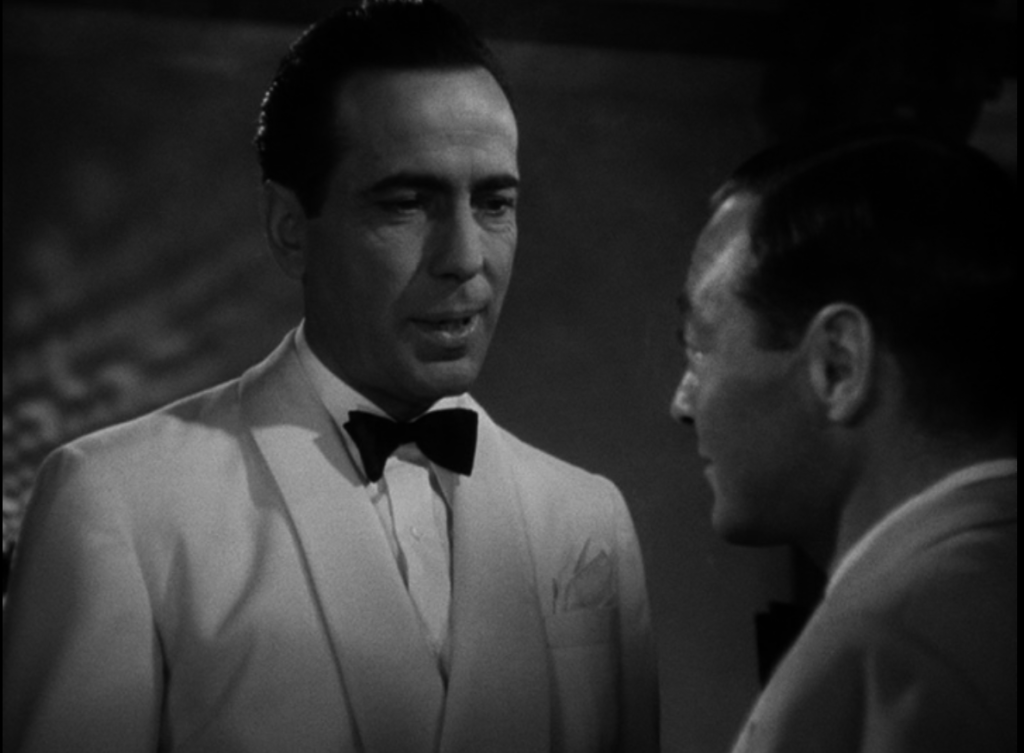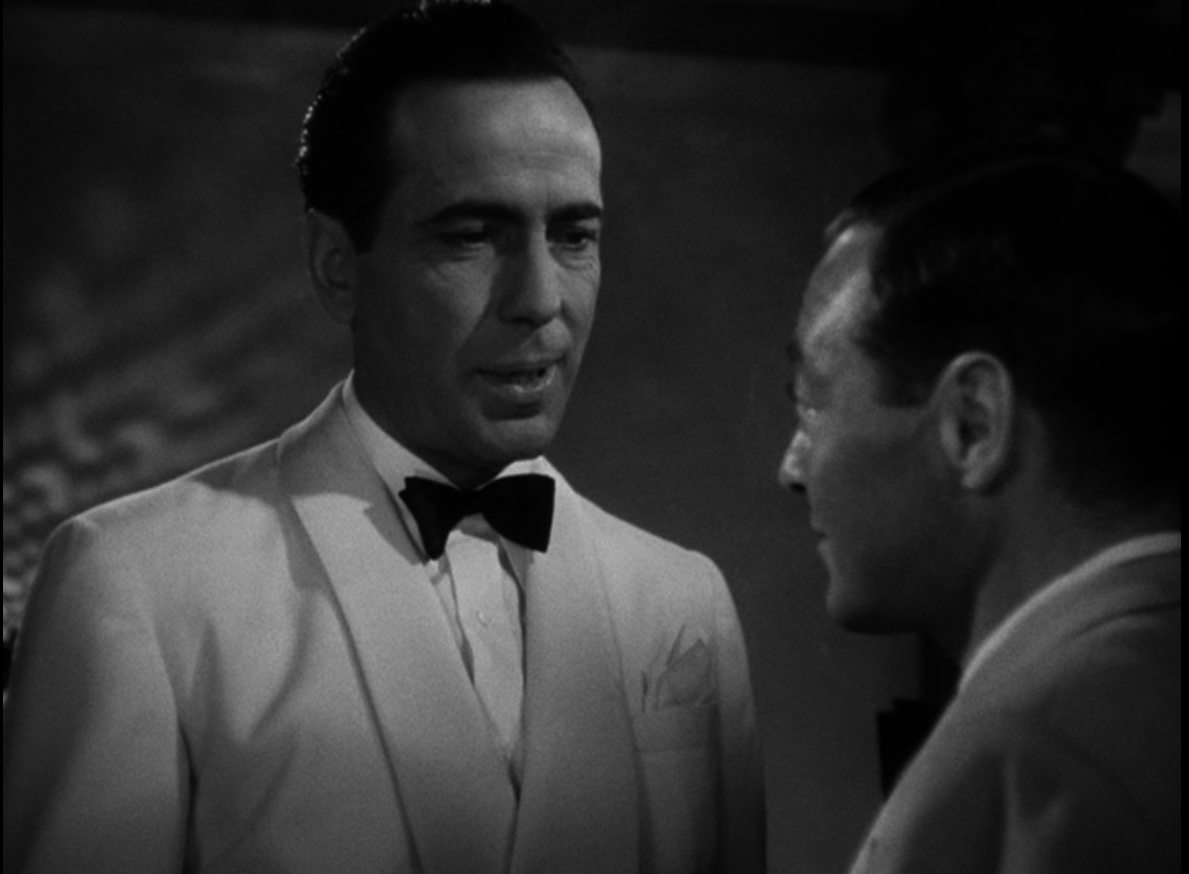Casablanca (1942) dir. Michael Curtiz
It is early December, 1941. In French Morocco, the port city of Casablanca, the hot night spot is Rick’s Cafe Americain. With an abundant supply of liquor, gambling, and the music of pianist/singer Sam (Dooley Wilson), it’s no surprise that “everyone comes to Rick’s.” The owner, Richard “Rick” Blaine (Humphrey Bogart), was once an idealist. He ran guns to Ethiopia against the Italian Fascists, and aided the Loyalist forces against the Spanish Fascists, and it is said that he barely got out of Paris before the German occupation (it’s never quite mentioned what he was doing there, but the German Fascists would not have been pleased.) But now Rick is strictly neutral, and because he cannot return to America for unknown reasons, runs his nightclub and sticks to his own business. He sticks his neck out for no one.

However, new arrivals have come to test his neutrality. Major Strasser (Conrad Veidt) of the Gestapo has come pursuing Victor Lazlo (Paul Henreid), a Czechoslovakian freedom fighter who has been reported dead several times and escaped a Nazi concentration camp at least once. With Lazlo is his beautiful wife, Ilsa Lund (Ingrid Bergman). They are trying, like many in Casablanca, to buy passage out of Morocco to Portugal, and thence to the United States and freedom. It would help if they had the special transit papers recently stolen by Ugarte (Peter Lorre), who entrusted them to Rick before he was arrested.
Pity, then, that the personal history between Rick and Ilsa means she is the one woman he never wants to see again.
This is one of Hollywood’s truly classic films, with many good scenes, endlessly quotable lines, stirring music, and a top-notch cast. It’s not very realistic; it couldn’t be shot on location in Casablanca or Paris, so it makes do with stock footage, backscreen projection, models and sets. The “letters of transit” would not work as described; they’re just something that are desired to move the plot along. Indeed, French police prefect Louis Renault (Claude Rains) tries to sell the Gestapo not just seizing Lazlo or killing him by emphasizing that this is “unoccupied” France. Under the Vichy regime, he must cooperate with the Germans, but still has the illusion of free choice, and they have the illusion of restraint.
It works better as an extended metaphor. In early December 1941, America is “asleep”; burned by previous attempts at international affairs, it wants to remain neutral in the world’s conflicts. America’s sentiments are with the countries threatened by the Nazis; Rick makes generous gestures to various people as long as he doesn’t have to stick his neck out, and his attitude towards the German officers is one of genteel distaste. But they weren’t going to be in the war until the Axis made it personal.
In retrospect, Victor Lazlo is an even more tragic figure. After World War Two, Czechoslovakia fell into the Soviet sphere, little better than the German occupation. He probably died well before his country was free.
But there’s also touches of humor. The pickpocket that warns of criminals; the Italian officer ignored by his German allies; and black marketeer Signor Ferrari (Sydney Greenstreet)’s war against flies.
Content note: Copious drinking of alcohol (Rick drinks to excess at least once), frequent smoking. Illegal rigged gambling (“I am shocked!”) It’s hinted as heavily as the Hays Code will allow that Captain Renault extorts sexual favors from women in exchange for allowing them visas. The central conflict is that Ilsa’s in love with Rick and her husband at the same time, and both of them love her. No matter who she ends up going with, there will be pain. Parents and guardians of younger viewers may want to discuss difficult topics with them.
This movie is part of the shared American culture. If you haven’t seen it already, you owe it to yourself, and you’ll probably enjoy it.

